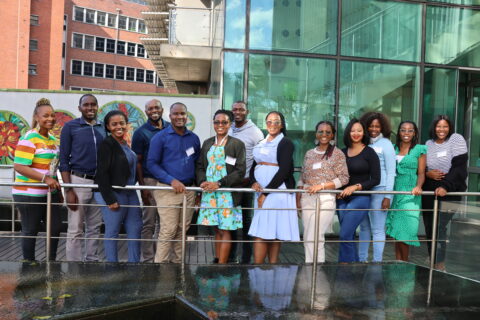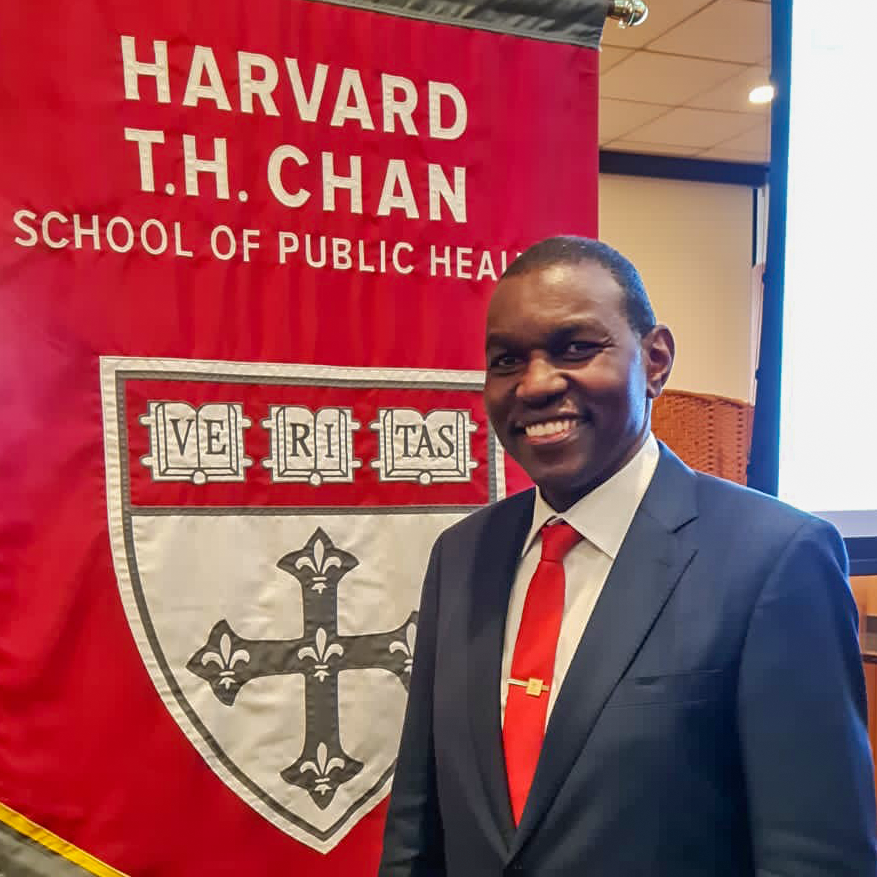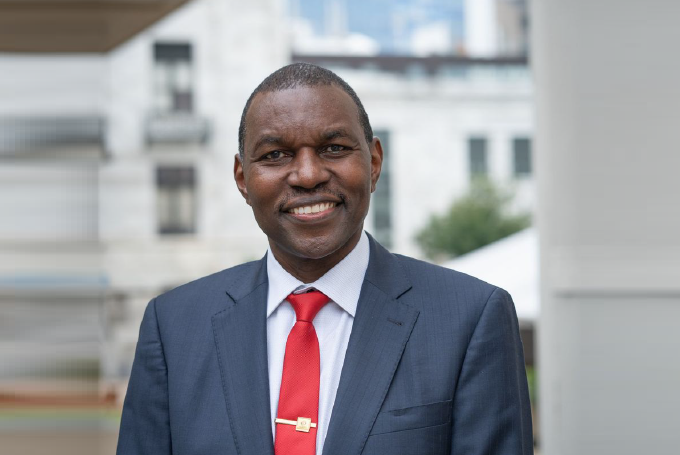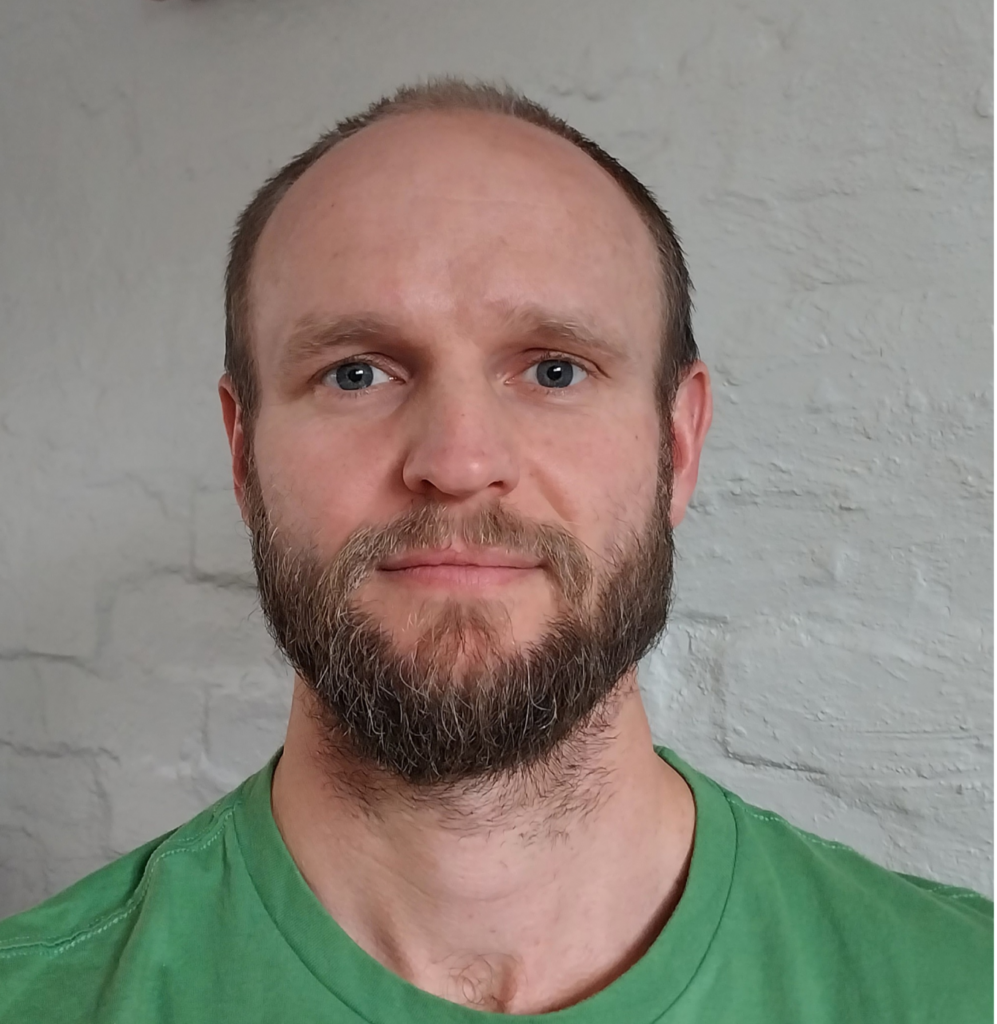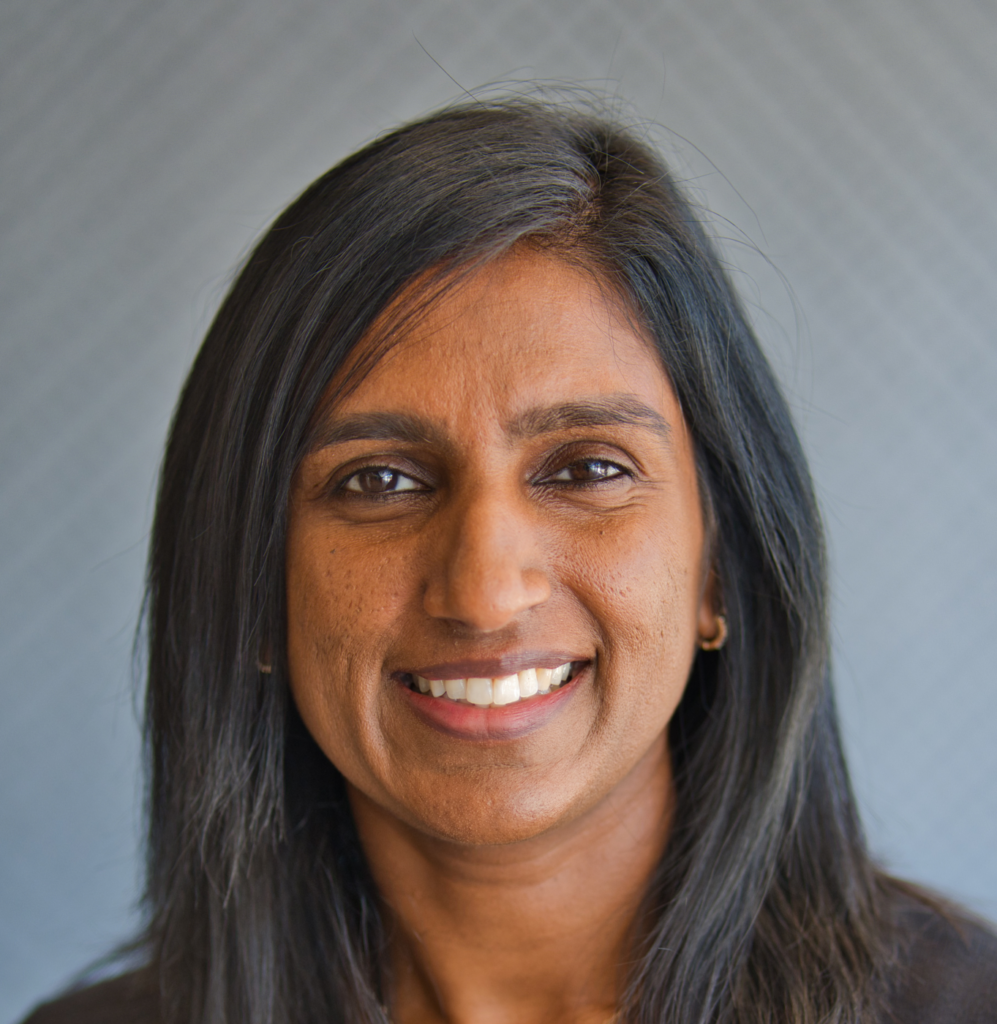News
Young scientists from Africa gather to learn data analysis and visualisation
October 16 to 20 this year saw the first of a series of three “Data Science for Biology” workshops held at the University of KwaZulu-Natal’s Nelson R Mandela School of Medicine, attended by 80 students from 18 institutions based in eight African countries – creating fertile ground for multi-disciplinary, multinational collaboration.
Focusing on reproducible data analysis using R – a programming language for statistical computing and graphics – the inaugural three-day workshop attracted clinical and biological researchers wanting to learn R as well as data analysts needing exposure to clinical datasets. Workshop instructor, Assistant Professor Laura Symul from Université catholique de Louvain in the Walloon Region of Belgium, said there are several other coding languages, however, R is free, open source, designed for statistical analysis (especially in biology and medicine), and allows full reproducibility of the analysis. Dr Joseph Elsherbini, a Data Scientist at Ragon Institute of Mass General, Massachusetts Institute of Technology (MIT), and Harvard, said the workshop focussed on reproducibility because it is crucial that researchers are able to re-produce the results of any given study. “By using code and R, researchers can trace the exact steps (analysis) taken by an initial researcher in a study,” he said. “Reproducibility is about making progress from data already obtained.”
The workshop was a platform for novice researchers to familiarise themselves with the benefits of R. It introduced attendees to R and biostatics basics, exploring data analysis and visualisation, and offered practical considerations for clinical research. The second workshop will focus on high-dimensional data, the final workshop will focus on bioinformatics, which is important because the human body changes its gene expression in response to several things including disease and diet. “Observing those changes closely can help researchers to identify which genes are more important for developing medical interventions,” Elsherbini explained.
The workshop series is a collaborative effort by SANTHE, the Ragon Institute, the University of Maryland School of Medicine, Washington University School of Medicine in St Louis, University of KwaZulu-Natal (UKZN) College of Health Sciences, Centre for the AIDS Programme of Research in South Africa (CAPRISA), Africa Health Research Institute (AHRI).
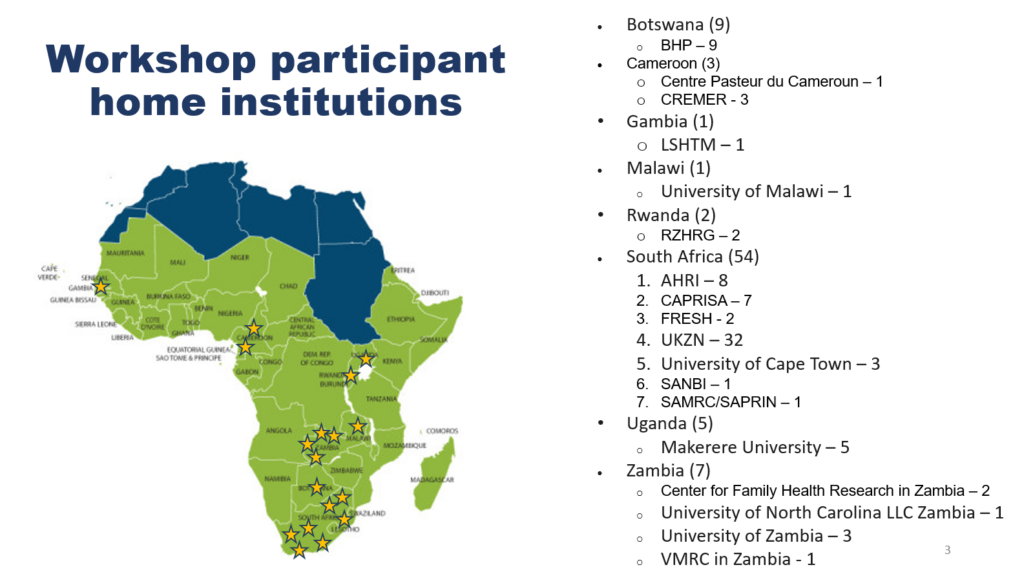
“I used to view R as something that only super intelligent people could learn and master, or people with coding experience. During this course I learned that I too can master R and it was because the facilitators broke it down to manageable chunks and were always available if we got stuck or confused,” said SANTHE Post-doctoral Fellow, Lerato Ndlovu, who is based at AHRI.
Leslie Kendou, a SANTHE Masters Fellow based at the Centre International De Référence Chantal Biya in Cameroon said, “I will now travel back home having learnt new skills using R that I can also teach my peers.”
Physiology Academic Development Officer in the School of Laboratory Medicine and Medical Sciences at UKZN, Asiphaphola Ludidi, said the workshop was most helpful in thinking of better ways to re-present and analyse the results of her research. She felt she could apply what she learnt not only to her PhD, but also to analyse data on student support – an important work deliverable for her.
Similar sentiments were shared by Derrick Semugenze, a PhD candidate at Uganda’s Makerere University and the University of Amsterdam. He said he enjoyed learning hands-on data analysis and how to draw graphs at the workshop. Another win for him was getting to engage delegates from other institutions for potential research collaboration.It is envisaged that by the end of the three-part workshop series, participants will have acquired fundamental computational skills, bioinformatics best practices, exploratory data analysis, and modelling techniques. The subsequent workshops will be held every six months.
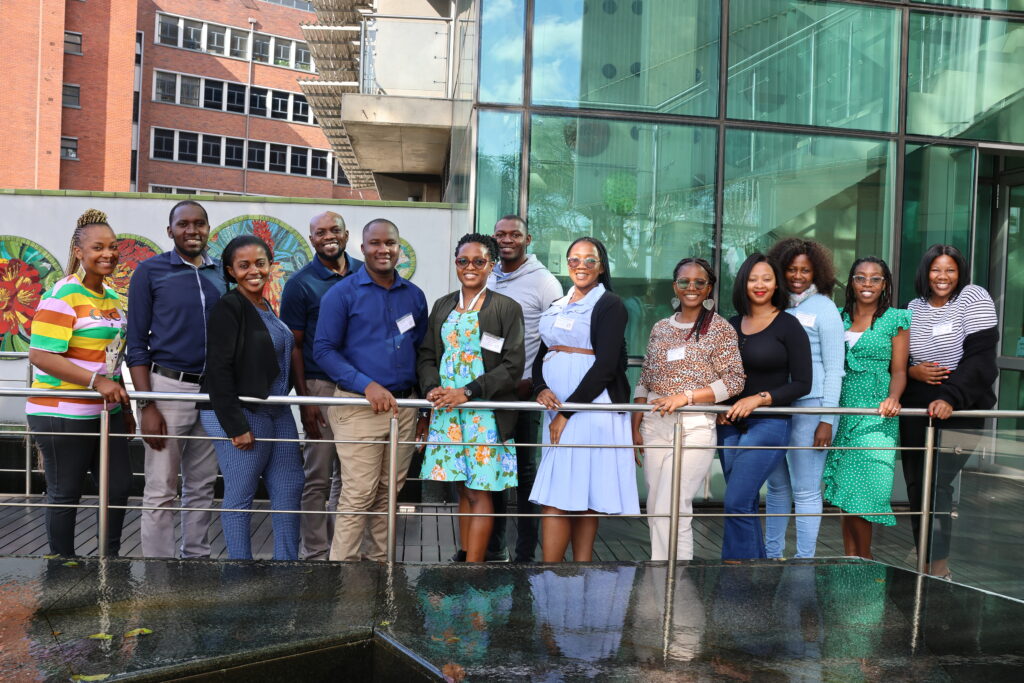
13 students from the class were able to attend due to travel scholarships supplied by SANTHE with support from AHRI and the Ragon Institute.

